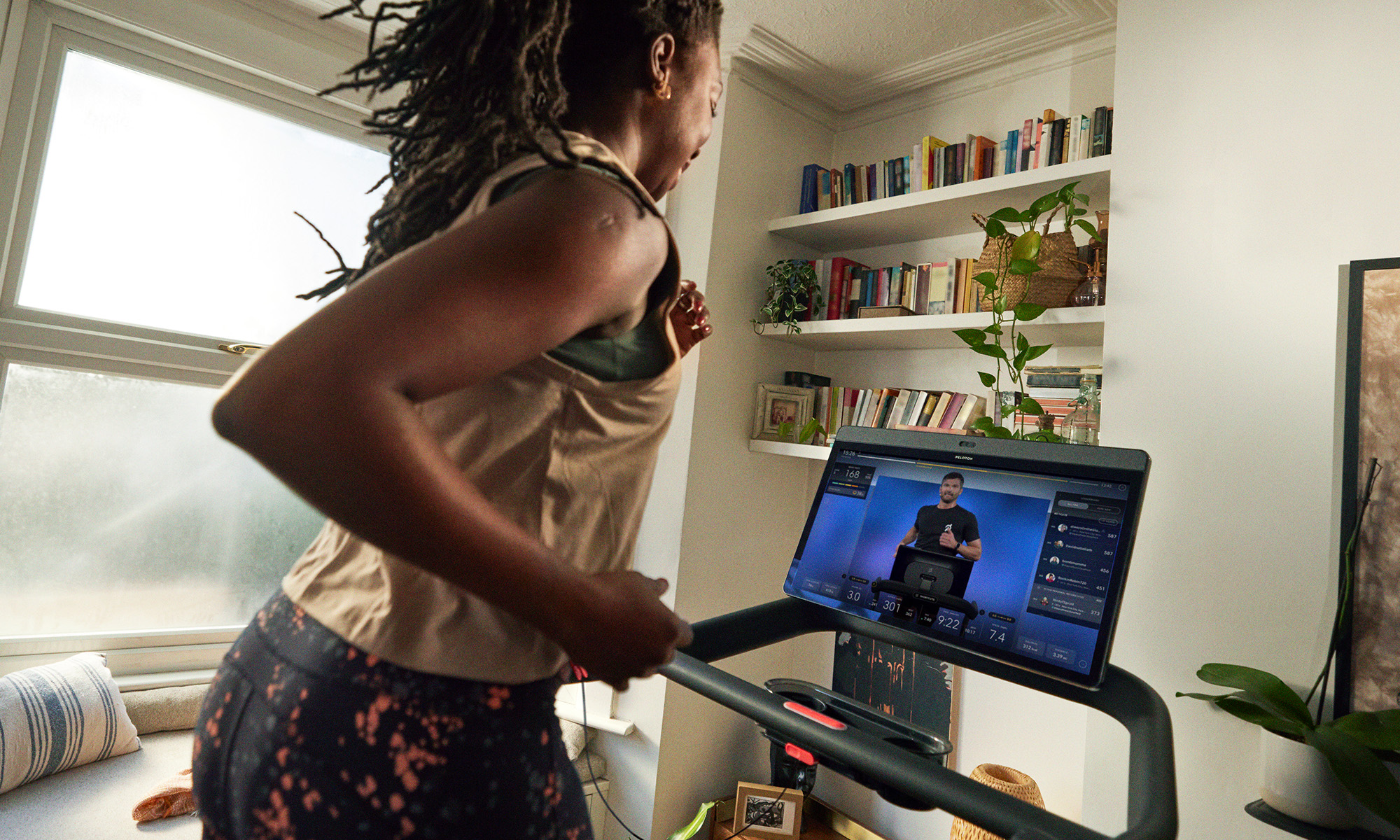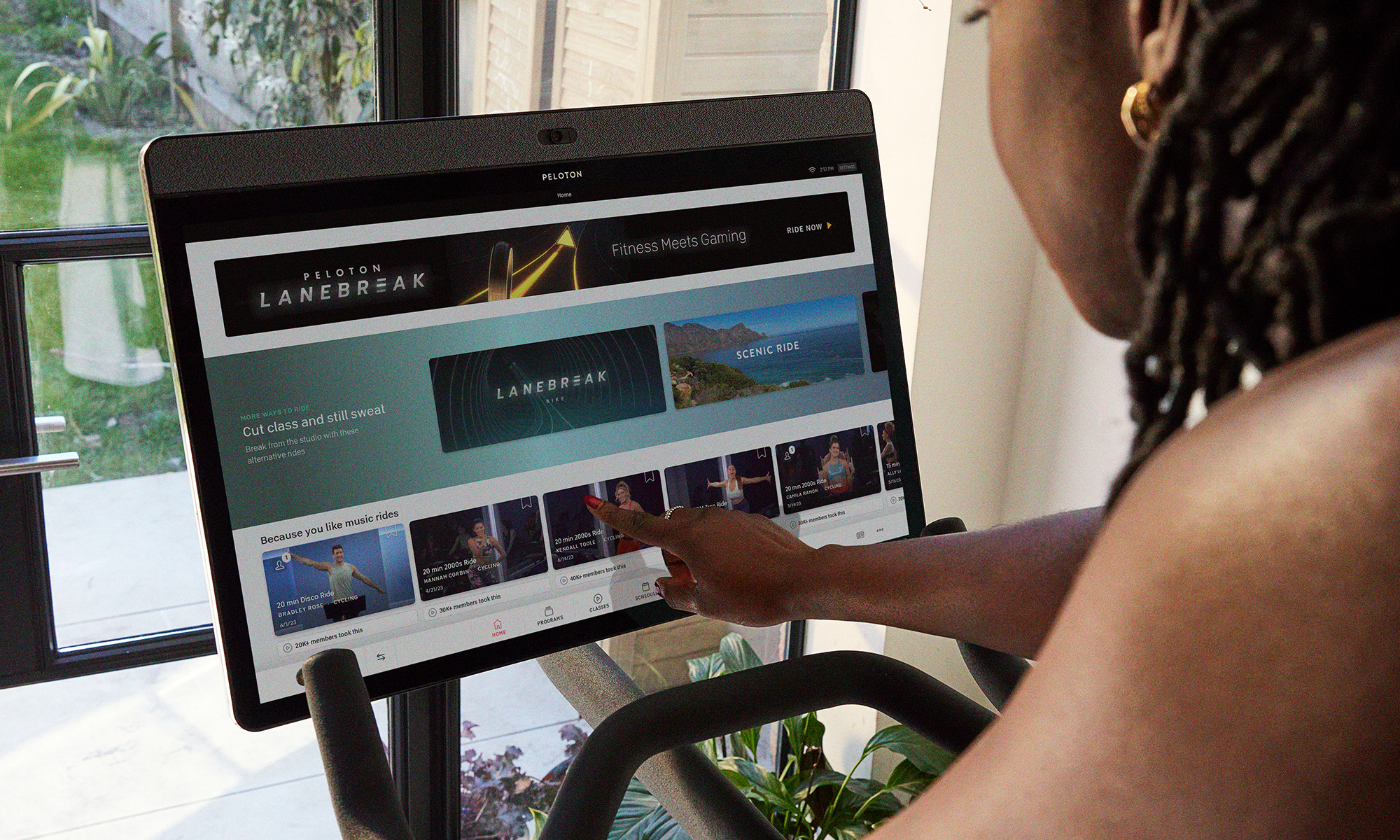Peloton Interactive (PTON +3.15%) has been cycling higher on bets the home fitness trend that surged during the coronavirus pandemic will live on well beyond the crisis, but what really got the connected exercise equipment maker moving last week was news that new, lower-cost fitness equipment is on the horizon.
Although it has been rumored for months that Peloton may introduce some cheaper workout gear that doesn't require taking out a second mortgage on your house to purchase, CFO Jill Woodworth has given the clearest indication yet that a new lower-cost product is coming.
Because competition is really beginning to heat up in the space, this is good news for investors.

Image source: Peloton Interactive.
Reaching out to the masses
A Peloton connected stationary bike costs $2,245, while a connected treadmill goes for just under $4,300. Both require a $39 per month subscription to access the full suite of online fitness classes the company offers.
Consumers can also opt to not buy a Peloton bike or treadmill and just subscribe to the classes for $13 a month, an offer that has greatly expanded its consumer reach. Recently Peloton said it surpassed 1 million subscribers in May, indicating that increasing the appeal of its business to more fitness enthusiasts is the way to go.
Speculation suggested Peloton would consider a rowing machine as its entry-level product. However, on a conference call, Woodworth told a Barron's analyst that the only product the company has ever identified as a possibility was a lower-cost treadmill, because the addressable market is just so big.
"We believe the running and boot camp category is two-to-three [times] the size of the bike category. If you think about our priorities, that is first and foremost on our minds," she said.
A packed house
While Woodworth did not lay out a timetable for when a cheaper treadmill would hit the market -- it wouldn't be "cheap," but rather more around the cost of a Peloton stationary bike -- raising the specter of new equipment now makes sense.
Nautilus (NLS +0.00%), for example, has been leaning hard into the category. Last year it launched its Bowflex C6 stationary bike (at half the price of a Peloton) that also lets users access its open platform to connect to any streaming class through their respective apps -- including from Peloton.
Nautilus is also building out its own platform, JRNY, that's currently available for Bowflex, but will be adapted soon for more of its equipment. In less than a day, it also sold out a new, compact barbell and curl bar system.
Equinox, the owner of SoulCycle, recently secured financing to help it expand its own connected fitness digital platform, and lululemon athletica (LULU +3.75%) just bought connected mirror maker MIRROR to tap into connected fitness. The field is getting more crowded.
Connecting even more to consumers
Peloton hasn't been standing still, of course. In addition to lowering the cost of its connected classes and hinting that new, cheaper products are coming, it's also making its classes available through Roku (ROKU 1.86%), putting them within reach of the streaming platform's 40 million subscribers.
There is a risk that signing up so many customers for the cheap subscription-only service will cannibalize sales of Peloton equipment that has higher-cost subscriptions attached, but that hasn't happened yet. Woodworth says Peloton views the discounted courses as a "lead generation tool."
That's where a cheaper treadmill can help elevate those entry-level subscribers into full-price members. Not that a $2,200 treadmill is going to help so many graduate, but it suddenly becomes a much more attainable product for people enjoying the fitness regimen Peloton's classes offer.
Sweating the details
Peloton Interactive's stock is about as expensive as its workout gear, as it trades for more than 12 times sales and still produces losses. Furthermore, it isn't generating free cash flow, instead spending the money on building out its studios in high-rent districts in cities like New York and London.
That might give the brand some cachet, but it might not be the best use of its cash, as it could produce its classes just about anywhere for less.
The stock is up 140% in 2020 and has nearly quadrupled from its low point, meaning Peloton is priced for perfection. Any hiccup in the tech stock's new product delivery or stumbling on connected subscriber growth could send shares tumbling. Investors might be better off waiting for this fitness guru to take a breather.








